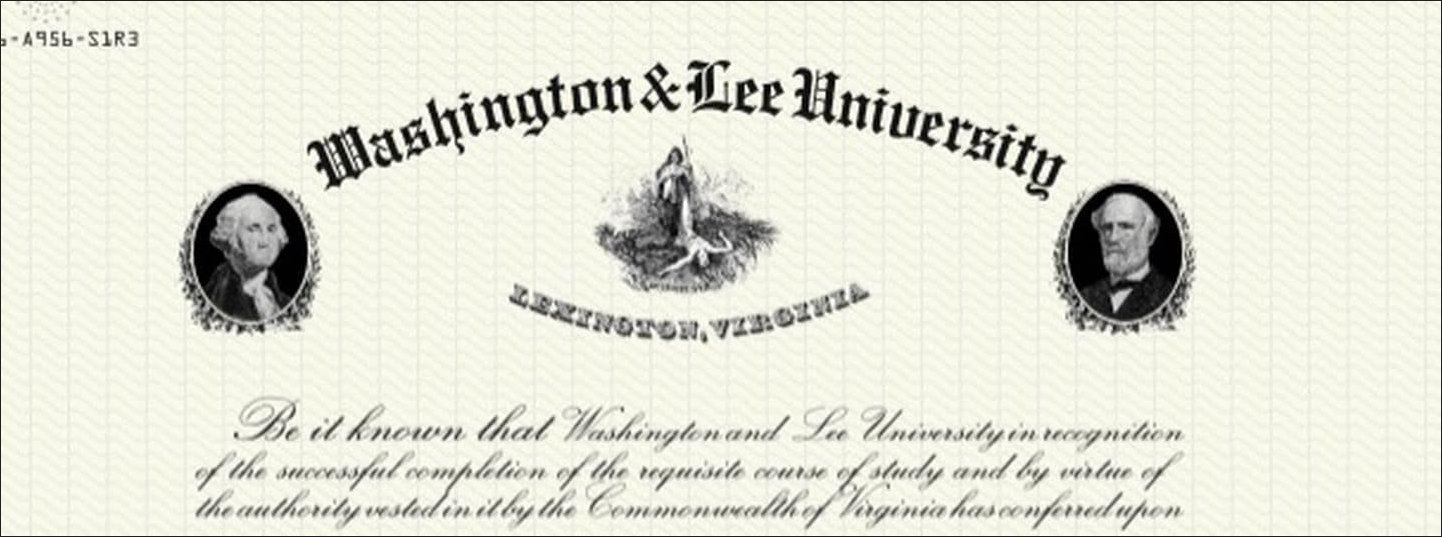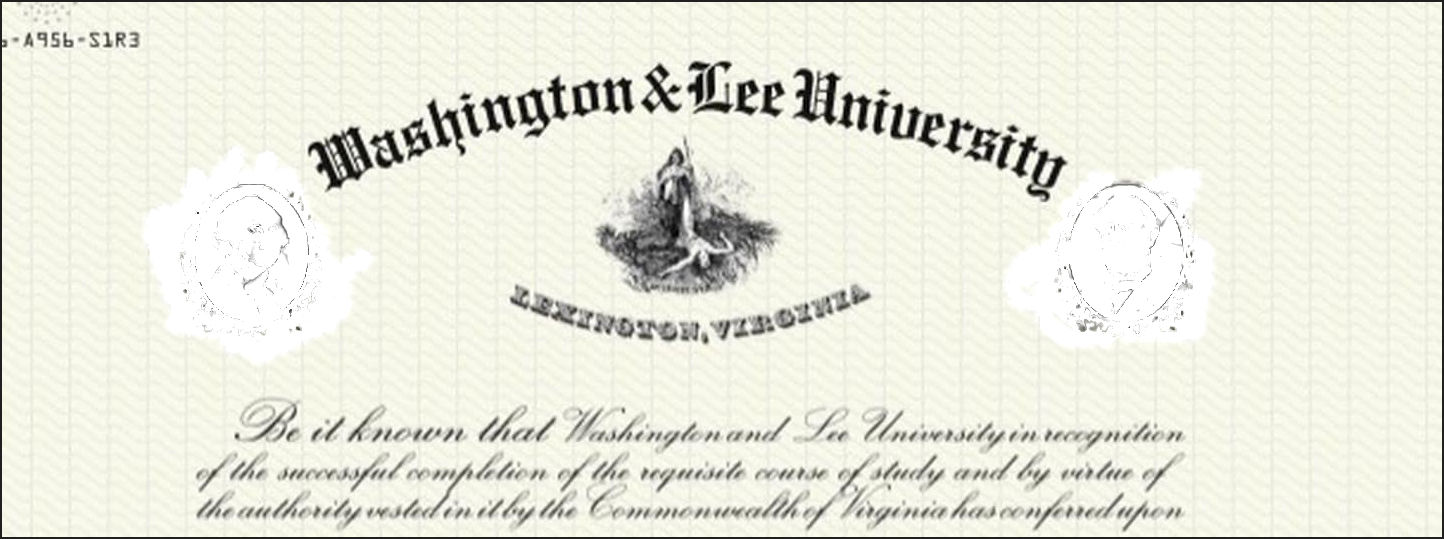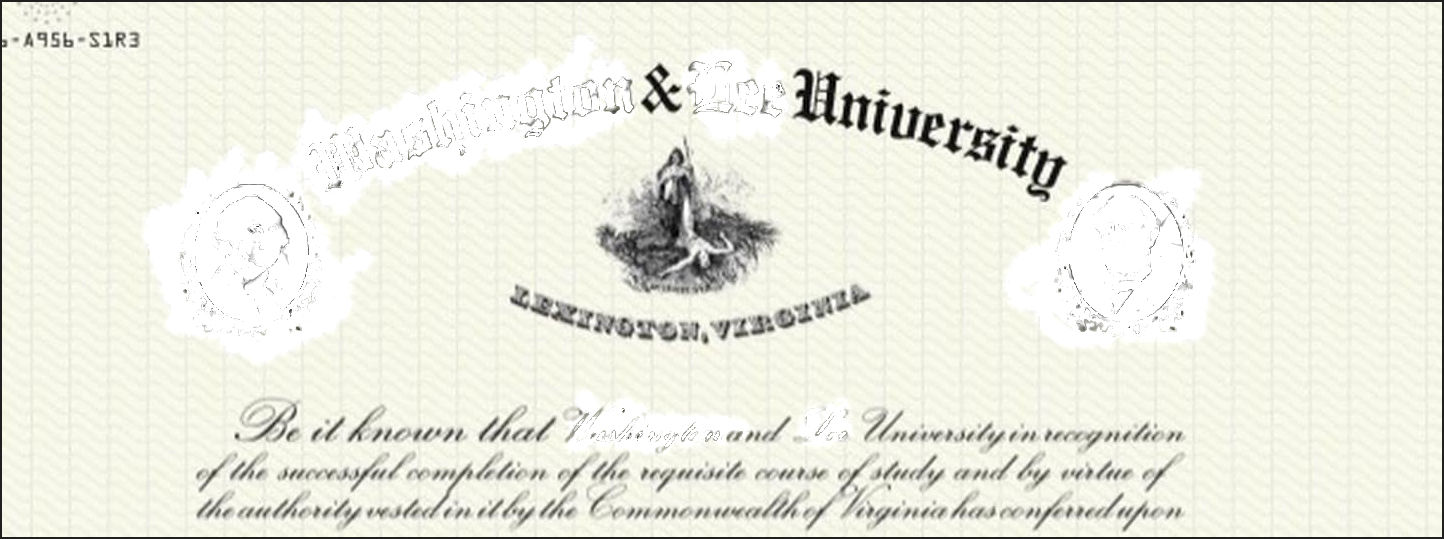Triggered by the slave-owning past of George Washington and Robert E. Lee, a group of Washington & Lee University law students are clamoring for the option of being awarded diplomas stripped of the portraits of the university’s namesakes, reports the Washington Post.
I guess you could say that I’m triggered by the fact that they’re triggered. My reaction: Get over it. If some W&L grads are so bent out of shape by the university’s historical association with former slave owners, regardless of their other accomplishments, maybe they should have thought of that before they enrolled.
Here’s my solution: whiteout.
With just a few dabs, your Washington & Lee diploma could look like this:
Of course, that still leaves the names “Washington” and “Lee.” If you find the portraits offensive, it follows that you’ll find the names offensive. But whiteout solves that problem, too. With just a little extra effort, your diploma could look like this:
That’s got a nice post-modernist ring to it — & University.
If that remedy doesn’t appeal to you, try this: Stop whining, you damn crybabies.
When you graduate from law school, you will find the legal world to be far more cold and indifferent to your exquisite sensibilities than college administrators are. You’ll find that your lawyer peers and judges don’t get triggered as easily as you, and you’ll find that they push back a lot harder. The working world of business and politics is not a nursery school where teachers give you hugs and kiss your boo-boos.
Admittedly, the legal profession may change as snowflake sensibilities seep out of academia into the culture at large. But in that case, you will find your sensibilities bumping up against the sensibilities of others just as easily triggered as you. That will be quite a world won’t it? He (or she) whose feelings are most easily bruised wins.
You also run the risk of backlash. A lot of us are getting sick and tired of your crybullying. One of two things is likely to happen, I’m not sure which. One possibility is that those on the right-of-center side of the culture wars will adopt the same tactics, working themselves into fits of indignation and outrage at every perceived and/or manufactured slight. You support the murder of unborn children? You eugenist! You racist! You Nazi! I demand — demand — that every supporter of abortion be hounded out of their position in academia, politics, and even C-level positions in the business world!!!
The other risk is that those on the right-of-center side will come to understand that your snowflake sensibilities are really an exercise of power, that sensibilities continually evolve to become ever more exquisite and ever more refined, and, as a result, there is never any appeasing the Left. Your sensibilities matter, mine don’t. Your values prevail, mine are trashed. You win, I lose.
At some point, we stop caring one whit about your sensibilities. And you’ll lose whatever power of moral persuasion you once had.




Leave a Reply
You must be logged in to post a comment.